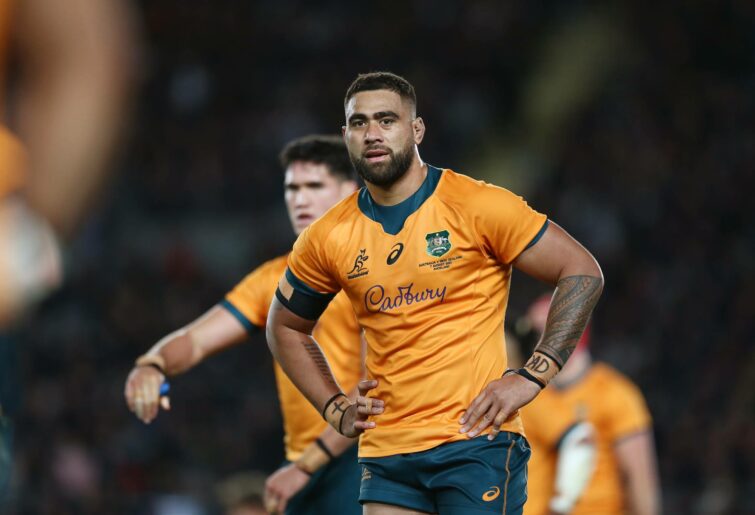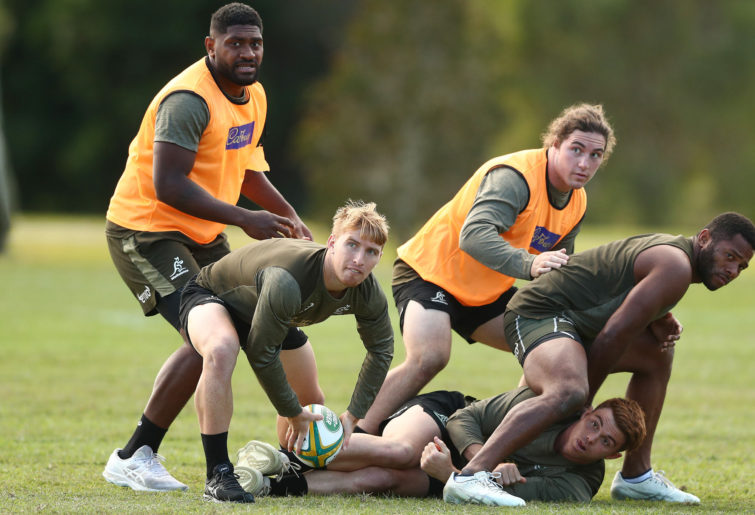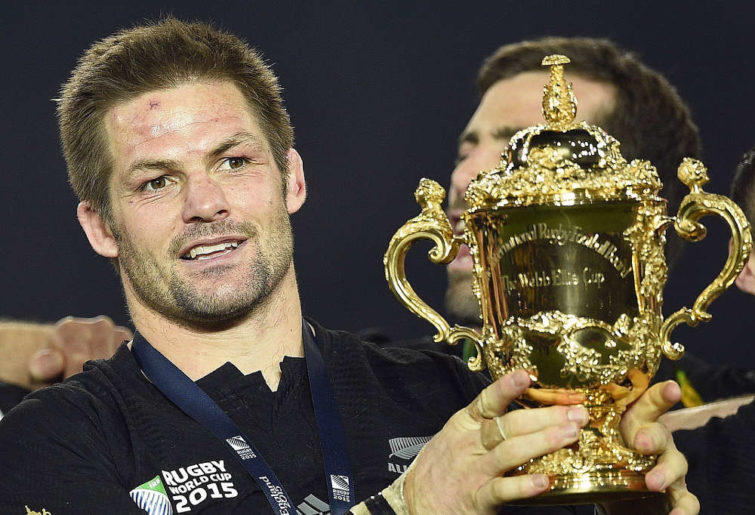“Deja vu all over again,” was how I tried to describe the sinking emotions after another Wallabies Test result disappear amid a vast collection of unforced errors, silly mistakes, and poor decisions.
The Roar’s Instant Reaction podcasts have been an interesting exercise on a number of fronts: from a content point of view, they’ve gone down really well and it’s clear that lots of you enjoyed them.
But for Jim Tucker, Harry Jones and I, they’ve been an exercise in raw emotion and immediate feedback, and we all felt some degree of catharsis about having the conversations, generally within 20 minutes of full-time.
“It’s like group therapy,” Harry said on Saturday night just gone, while Jim insisted he “needed a toy here to throw out of the cot”.
But while we had our outlet to vent and air a few immediate thoughts, the Wallabies’ own review of the match and the series would have cut a lot harder and a lot deeper.
“We’re disappointed because I reckon we’re better than the result tonight and better than the result last week,” Wallabies coach Dave Rennie said post-match.
“With last week it was a slow start, we fought our way back into the contest and probably should have finished over the top. We started better this week. We got behind again and then had enough ball and territory position to win that.
“That’s where we’re at. We’ve got to be better. We’ve got a lot of footy. We’re three weeks into our season and so we’ve got a few things that we need to sort out and tidy up heading into Argentina.”
And that is now the equation.
Find the polish
Easy to say, much harder to do, but still necessary for this playing group because all the little things in each game that amounted to the accurate “we just weren’t enough clinical enough” assessment across the series certainly isn’t limited to these three Tests against England.
Just last year we saw a 28-26 loss to France in July, then 15-13 losses to Scotland and 29-28 to Wales on the November tour. Chances to win them all, but the accuracy or the polish or the patience or all of the above lacking in the key moments.
Clearly, execution takes time. You can’t just pop down to your big warehouse chain of choice and buy it in bulk quantities. Different kinds of polish, isn’t it.
But it’s needed, and it’s needed between now and next October, because it could be the difference between winning a quarter-final and not. And you certainly can’t win a semi-final without winning the one before it.
The coaching group needs to put this straight on the players: what are you doing to ensure you can throw the exact pass you need to finish the next opportunity?

(Photo by Anthony Au-Yeung/Getty Images)
Competitive anxiety to lift standards
We’ll find out soon enough about training squads for the Rugby Championship and how big a squad will be required for Argentina in a few weeks’ time.
But there surely can’t be a better motivator for an individual to do the little extras than a bit of competitive tension.
The Wallabies used 32 players across the England Tests, from an initial squad of 35, albeit with six injury-forced additions. Throw in the 31 players used across the three Pacific Nations Cup games, and there’s a solid base of options being assembled.
So bring them together. Maybe not a straight merge of the two squads and a group of 70, but bring in another 15 or so and push the Wallabies squad out to 50 or so. Three full XVs plus some reserves.
Then start naming first, second and third XVs every couple of days. Not publicly, but within. Get some guys on edge. Challenge them to prove you wrong on the training track.
And make it properly visual; arrows going everywhere.
“This guy started the third Test, but look at this, we reckon there are two guys in front of him now in that position. You’re in the ‘Thirsty Thirds’ today mate, show us why we should promote you.
“You dozen guys need some time out of the squad for a few days to think about what we want you to work on. Go and have a game with your club.”
Create a bit of fear about someone’s place.
If it pushes individuals to push themselves, then great. If individuals pushing themselves lifts overall standards, even better.
Full noise on the training track
And what better use of three full XVs than to run them off against each other. Have the attack coach and his XV trying to poke holes in the defence coach’s XV. Socks up, mouthguards in, and go, full noise.
Challenge lineouts. Rush up on wide-set backlines. Create breakdown chaos. See who thrives in the face of it. See how a XV works their way out a tricky situation. Up the physicality. Celebrate the wins, review the losses honestly.

A Wallabies training session. (Photo by Chris Hyde/Getty Images)
Without meaningful competitive rugby, this is going to be needed anyway, and it’s going to be needed fairly regularly. If only there was some kind of national competition for fringe players to find form this time of year.
Sure, you can send some back to club rugby, and I’m sure that will happen, but it’ll be a long way from international standard, it’ll be disruptive for the club side, and it will almost certainly prompt the individual to play for themselves on the day. And that kind of runs counter to wanting guys to play for each other.
But something is needed to stimulate the match environment.
Decision-making under fatigue
Because just training for the next four months isn’t going to be enough.
The All Blacks of years past spoke glowingly of the mental improvements made under renowned mental-skills coach Gilbert Enoka. Under his tutelage up to 2015, they won consecutive Rugby World Cups, and he remains their team manager.
And if there was a common element to the All Blacks in those RWC years and even since, it’s that they always seemed to come up with the right option at the right time. There are probably conversations about that ability going on right now, but the point remains.

Richie McCaw (Photo: AFP)
When push came to shove, you rarely saw New Zealand throwing passes over heads and into touch, and they certainly didn’t throw speculative flick passes to a teammate who only knew about it when the ball hit their knee. If they held the ball for 12 or 16 or 19 phases, they almost always came away with points rather than a knock-on, or a ruck penalty conceded.
Their minds were strong, and their decision-making when their body was under huge pressure and fatigue was sound.
That’s another thing you can’t pick up in the bulk warehouse, nor can it just be added before departing on tour in a few weeks. But it happens too often with this Wallabies playing group to not need significant work.
Have the captaincy discussion
I didn’t know it was coming when Harry Jones raised this on the podcast on Saturday night, and I’d not felt a need to consider it before, but his point about Michael Hooper and the Australian captaincy needs exploring.
I don’t know that I fully support the idea, but it’s a conversation that should be had and if a decision was made to make the change, now is definitely the time to do it.
It was notable that Eddie Jones directed significant praise onto Courtney Lawes and the on-field leadership of Owen Farrell, Jack Nowell, and Ellis Genge working behind the skipper. Only a fortnight ago Jones had to concede Farrell was angry about not regaining the England captaincy.
Fourteen months and probably 15 or 16 Tests between now and the World Cup would give a new captain time, if the Aussies did make a move, and would give the team time to adapt.
And Hooper may still be the man for the job, for what it’s worth. But being challenged about his leadership might be the spark that he needs to look at his performance as captain, too.
It’s a discussion worth having.
Realistically, the Wallabies played a lot of really good rugby against England, and the odd bounce of the ball here and there may well have produced a different series result. They clearly did a lot right.
But the challenge remains for them to make the improvements that they’ve likely already identified, so that this promise that we’ve been hearing about for a while starts producing results.































































































